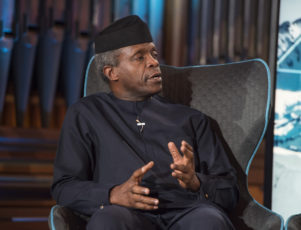Africa is changing, and technology is the catalyst for the unprecedented changes that are occurring continent wide. Although there are still large areas of the continent that lag behind, the levels of tech access found in, Europe and the USA, change is happening at an incredible rate. These changes are fueled by Africa’s innovators, who are helping alter how the rest of the world sees the globe’s second largest continent.
The rapid growth of technology
The growth of cellphones and the internet in Africa has happened so rapidly that access to personally owned technology has often happened before nations have built more routine infrastructure. Before many nations have even constructed reliable, national electricity supplies, individuals have access to cellphones that are fueling innovation, and changing people’s outlooks.
The cellphone company Ericsson, says that by 2019 there will be 930 million cellphones in Africa. The majority of Africa’s population is under 30, and the lack of infrastructure in many countries has proved to be a spur for creative solutions to everyday problems. Cellphone money transfer systems are one of Africa’s most popular technological services, in part fueled by the lack of access to banks that many people experience. This technology has now moved to the west, showing an intriguing reversal of the flow of new inventions. The developed world is now importing some of the developing world’s ideas and creations.
As broadband penetration expands, the opportunity for further innovation will become even greater. Access to regular cellphones is gradually moving towards access to smartphones. Around 20% of the continent currently has access to the internet, but this is expected to treble over the next 5 years. According to The Guardian, cellphone technology will account for 8% of Africa’s GDP by 2020, a figure that is more than double what it is anywhere else in the world.
African created apps now cover a broad range of areas, from providing question and answer services with registered doctors, to allowing farmers market figures to ensure they maximize their profits. A young generation of Africans across the continent have bypassed traditional technologies, such as landline phones and branch banking, and simply moved straight into a world of conducting everything via their cellphone.
Confronting the obstacles
Despite the swift growth in personal technology in Africa, there are still clearly issues around more routine forms of modernity that need to be overcome. For instance, in sub-Saharan Africa only around a third of people have access to grid electricity.
Cellphones are one thing, but for technology to become a genuine driving force – against poverty – there does need to be a minimum level of infrastructure.
Akinwumi Adesina, President of the African Development Bank, said, “If you can’t have electricity you can’t drive any industrial development… electricity drives everything, so until we fix that problem Africa faces huge challenges.”
This is an issue that organizations like the African Development Bank are addressing, with the ADB investing $150 billion over the next 10 years in order to try and provide connectivity to a further 130 million people.
Several nations have invested heavily in technology, in order to draw investment from major, foreign corporations, and also to provide openings for domestic talent to shine. Kenya in particular has looked to announce itself as a global leader in nurturing tech innovation, including the construction of an entire tech city (Konza) to create jobs, support start-ups and attract foreign investment.
Continuing to adapt
There are areas in which Africa has incorporated new technology very quickly, with e-commerce being one of the most notable success stories. Nigeria’s Jumia Group is Africa’s first tech “unicorn”, meaning that the company is valued at $1 billion.
For other companies to have such success, and for Africa’s tech entrepreneurs to feel empowered, there needs to be cross continental support from governments. There are signs that several governments intend to help support tech innovation, and the hope has to be that as this brings increased prosperity to individual nations, so their neighbors will follow suit.
Mteto Nyati, chief executive of MTN (South Africa’s second largest telecommunications company), says that the continent needs “partnerships between governments and mobile operators” in order to ensure that future technology, such as 5G, is widely available.
Aside from the money that Kenya’s government has invested in technological infrastructure; there are other governments showing determined efforts to embrace the opportunities that technology offers. Rwanda aims to become Africa’s first “cashless society” in terms of the public sector, and it has spent 15 years working to digitize much of society.
What is most exciting in such a fast changing continent is that this leap forward in tech innovation can help solve long term difficulties faced by normal people. Technology commentator, Ory Okolloh, states that many African startups now are “thinking about innovative ways to solve real problems in the market.” The next generation of African entrepreneurs looks set to benefit from a continent that has truly embraced technology.
Read more









